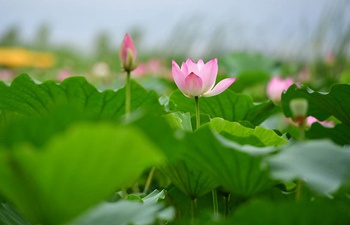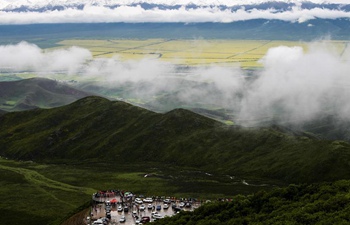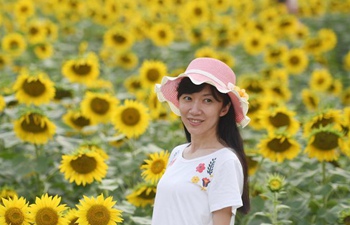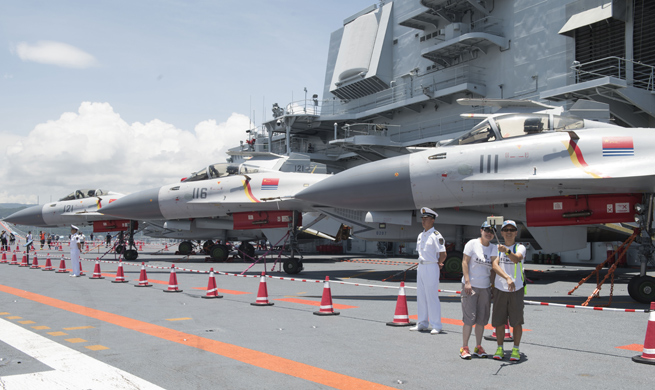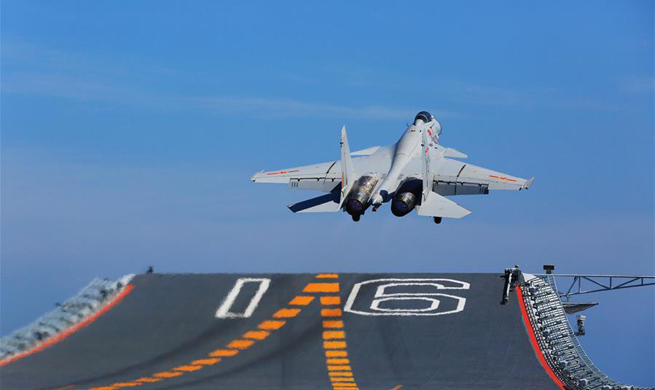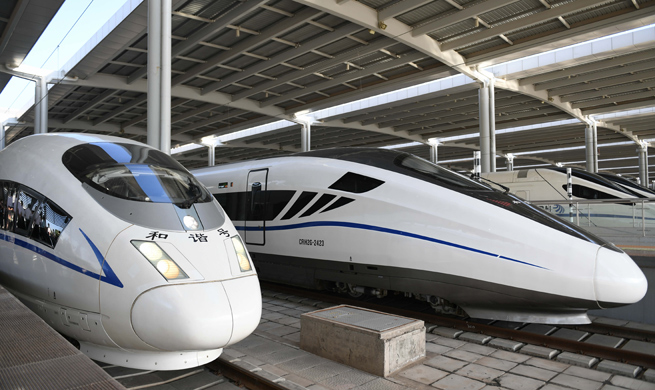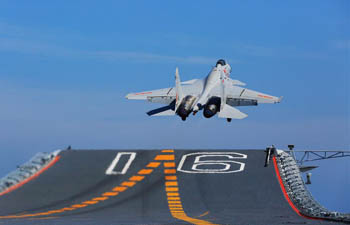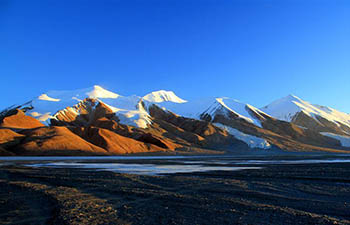by Xinhua writers Yu Fei and Xu Haitao
HEFEI, July 10 (Xinhua) -- More than 20 years have passed since Pan Jianwei was first astonished by the quantum world. Pondering the strange micro world has carved deep lines in the quantum physicist's forehead.
People still don't fully understand such phenomena as quantum superposition and quantum entanglement, but Pan is shining some light in the field, manipulating microscopic particles and applying the magical quantum characters to develop quantum cryptography and quantum computing.
The world's first quantum satellite, Quantum Experiments at Space Scale (QUESS), launched by China in 2016, has realized the distribution of entangled photon pairs over 1,200 kilometers. It has proved that quantum entanglement, described by Albert Einstein as a "spooky action," still exists at such a distance.
As the satellite's lead scientist, Pan has a greater goal: to test quantum entanglement between Earth and the moon at a distance over 300,000 km, which may help research on gravity and the structure of spacetime.
Pan is a science legend. When his co-authored article about the first quantum teleportation was selected by academic journal Nature as one of the 21 classic papers for physics over the past century, he was only 29 years old. When he was appointed a professor of the University of Science and Technology of China, he was 31. When he was elected an academician of the Chinese Academy of Sciences, he was 41, the youngest academician at that time. When he won the first prize of National Natural Science, China's highest science award, he was 45.
The star scientist and media celebrity says science should be in the spotlight rather than scientists.
BEWILDERING START
Born on March 11, 1970 in Dongyang City, east China's Zhejiang Province, Pan was an excellent student and a playful boy. He went to study in the University of Science and Technology of China in 1987, where academic competition was fierce.
Wu Jian, Pan's classmate in university and now a scientist in China's Dark Matter Particle Explorer (DAMPE) Satellite project, recalls that he once gave Pan an ugly haircut, but he was not angry. Pan was happy go lucky.
In 1990, Pan first came into contact with quantum mechanics, which totally confused him: "How can there be such a phenomenon as quantum superposition? It's like a person being in Shanghai and Beijing at the same time."
Pan almost failed in the midterm exam on quantum mechanics.
Desperately trying to figure it out, Pan chose quantum mechanics as his research direction -- and he's still entangled with it.
He realized all the theories about quantum physics had to be tested in experiments. However, China lacked the conditions to do such experiments in the 1990s.
After graduation in 1996, Pan went to Austria to do his PhD at the University of Innsbruck, studying with Anton Zeilinger, a world-renowned quantum physicist.
"When Pan came to me as a young student, he was a theoretical physicist. He had not done any experiments before. But I very soon realized he had the gift for doing experiments," Zeilinger says in an interview with Xinhua.
"I assigned him to do the experiment on teleportation with a group, a very complicated experiment. He accepted it and immediately got started."
He was full of enthusiasm. Soon he was the leading person in the experiment. When there was a problem, he was never discouraged. He always saw it as motivation to do something that had not been done before, Zeilinger says.
He was optimistic, always found solutions to problems, and always wanted to work to find something new, says Zeilinger.
He always got along with his colleagues. Now he is a global leader in the field of quantum physics. "I'm very proud of him," says Zeilinger. "I encouraged him to go back to China. Because I could see there was a big opportunity for him in China."
A GOOD MEAL
After mastering advanced quantum technology, Pan returned to the University of Science and Technology of China in 2001 to establish a quantum physics and quantum information laboratory, hoping China could quickly catch up with the pace of development in the emerging field of quantum technology.
A good cook, Pan knows the best ingredients are vital for a good meal. ( In order to make breakthroughs in quantum information research, the lab needed scientists with different academic backgrounds.
Pan sent his students to study in Germany, Britain, the United States, Switzerland and Austria to obtain the most advanced knowledge in specialties such as cold atoms, precision measurement and multiphoton entanglement manipulation.
So far, Pan and his team have published about 200 articles in authoritative academic journals including Science, Nature and Physical Review Letters, indicating that China is at the global forefront of quantum communication.
PEACE OF MIND
In experiments, there is inevitably frustration. But Pan says they need patience and the key is to have fun in the process.
"Pursuing the secrets of the quantum physics brings me calm and peace. It's like walking on the lawn in the spring sunshine."
A fan of classical music, Pan says music and science both give him tranquility and happiness.
In college, he read the collected essays of Einstein. "For me, Einstein's essays are the most profound and beautiful sound of nature," he says.
"The research of quantum physics has an impact on my personality and thoughts. Quantum mechanics tells me it's very hard to define right and wrong, good and bad. It makes me tolerant," Pan says.
He also takes part in many activities to promote science in China.
Development driven by innovation is one of China's core strategies. "Building an innovation-oriented country requires nurturing the public's interest in science," Pan says.
He believes China can catch up with Japan in about two decades in the field of science and technology, as long as the research funds are allocated and used by the best Chinese scientists properly.
JEWEL IN THE CROWN
"The experiments on the QUESS satellite are the most important scientific research in my life," says Pan.
However, the quantum world remains mysterious. Will the "spooky action" that confused even Einstein extend in space without limit?
"In theory, this bizarre connection can exist over any distance, but we think quantum entanglement might be affected by gravity. The different models need to be tested at a longer distance, and the boundary between quantum physics and the theory of relativity and study the structure of spacetime and gravity should be explored," Pan says.
"We hope to send a photon source to the Lagrange point of the Earth-moon system to distribute entanglement between Earth and the moon at a distance of some 300,000 km in future to test relevant physical theories," Pan says.
He says it is the "jewel in the crown" of quantum physics. "I'm 47 now. I hope we can accomplish that experiment before I retire at around 60."
Pan regards developing quantum communication and quantum computing as his responsibility, while exploring the fundamental secrets of the quantum world as his inner motivation.
"I never forget questions at the deepest level. I want to continue to experiment. Maybe in future, we can know why there are weird phenomena like quantum entanglement," Pan says.
At the same time, he says research on scientific theory should not be separated from developing technologies of practical use.
"In addition to quantum communication and quantum computing, quantum physics can improve our lives, such as in developing the atomic clock, precision measurement and the early diagnosis of cancer."






